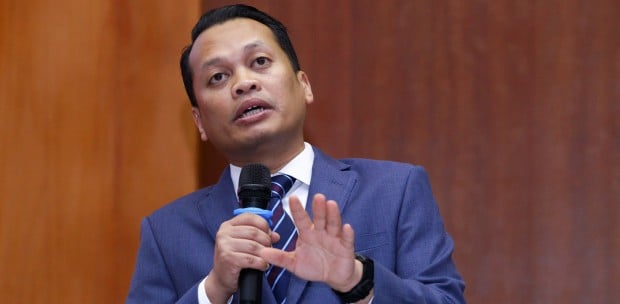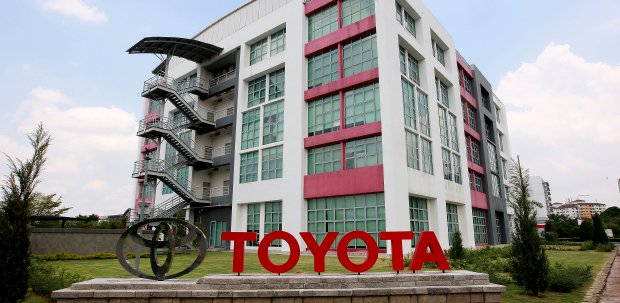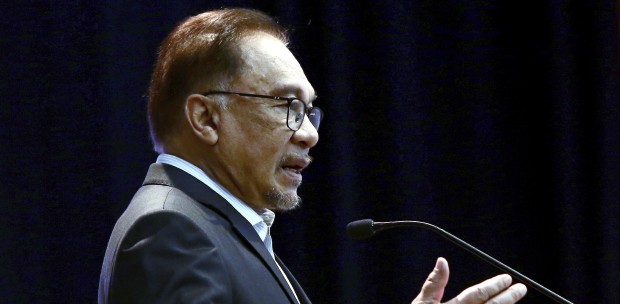THE global green job market is experiencing significant growth, with the potential of creating millions of new employment opportunities in the coming years.
According to the International Labour Organization's (ILO) report, 24 million new jobs will be created globally by 2030, providing sustainable practices and environmental care.
Malaysia is no exception — the green job sector is expanding, providing more than 30,000 openings for individuals seeking employment opportunities since early this year.
In collaboration with Asean, it is actively promoting green job initiatives to address economic and environmental needs through Asean Green Jobs Forum 2024.
Initiatives like job fairs and other programmes are being actively carried out by some companies in Malaysia to shape a new era of economic growth and a new jobs landscape.
One of the fairs, the MYFutureJobs Kesuma Madani Job Fair was reportedly offering over 10,000 green jobs.
Green climate action will have a long-term positive impact on global growth as it will push governments to deliver on their commitments.
The 2024 Budget set aside RM230 billion towards sustainability-related development, with RM30 billion from the government and RM200 billion from the private sector.
Strategic frameworks like the Green Technology Master Plan 2017-2030 (GTMP) and the National Energy Transition Roadmap (NETR) have also been introduced.
However, it will take longer to see the benefits of an uptick in green jobs in Malaysia and more efforts are needed.
The progress of GTMP, for example, leaves much to be desired. Despite the ambitious goal of reaching 70 per cent of renewable energy (RE) capacity by 2050, the current installed capacity of 27.05 per cent this year is still lagging from the 31 per cent target set for 2025.
The implementation of the Sustainable Development Goal (SDG) is low while the Environmental Social and Governance (ESG) principles are still not widely accepted and adopted by the business sector in this country.
Insufficient basic and applied research and development (R&D) in the fields of environment, natural resources, climate change and disaster risks as well as low commercialisation of indigenous green technology, have also constrained efforts towards green growth.
The NETR mentioned certain projects and small-scale initiatives that failed to attract the attention of major investors and financial institutions, resulting in higher development costs.
Notable examples are energy efficiency and bioenergy which frequently face scalability challenges.
Additionally, navigating the human capital aspects of the energy transition presents multifaceted challenges too.
Bridging the gaps between existing workforce skill sets and the emerging demand for green skills such as in hydrogen and carbon capture, utilisation and storage (CCUS) requires targeted training and upskilling initiatives.
Addressing low energy literacy levels is vital to ensure informed decision-making and active participation in the transition towards a more sustainable energy landscape.
An equitable and just energy transition must address forthcoming challenges to create a workforce prepared for the future while upholding social inclusivity.
The government should emphasise on bottom-up transformation of Malaysia's green job market to involve community-driven initiatives, local engagement and business involvement in creating sustainable employment opportunities.
Challenges like limited data on green jobs and the need for capacity building require collaborative efforts to reshape the job market for a sustainable future.
By fostering green skills and promoting local innovation, Malaysia can prepare its workforce to meet the demands for green economy and ensure a successful transition towards sustainability.
The green economy offers diverse job opportunities beyond traditional roles like solar panel installers or conservationists.
The electric vehicle sector, for instance, requires a range of skills from miners to urban planners, highlighting the breadth of green job prospects.
Additionally, the government should take immediate action to address the significant shortfall in renewable energy capacity and provide a detailed plan to achieve the new 70 per cent target by 2050.
They include measures to overcome technical and financial barriers, ensure affordability and reliability for the people, and align policies across different sectors to ensure a just and equitable transition for workers in the green job sector.
The time has come for the government to lead the way in championing green job creations and sustainable development for the benefit of present and future generations.
The writer is Research Analyst (Intern) at Institut Masa Depan Malaysia (MASA)
The views expressed in this article are the author's own and do not necessarily reflect those of the New Straits Times





